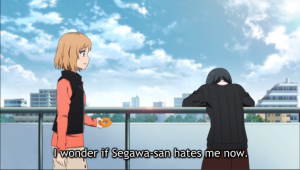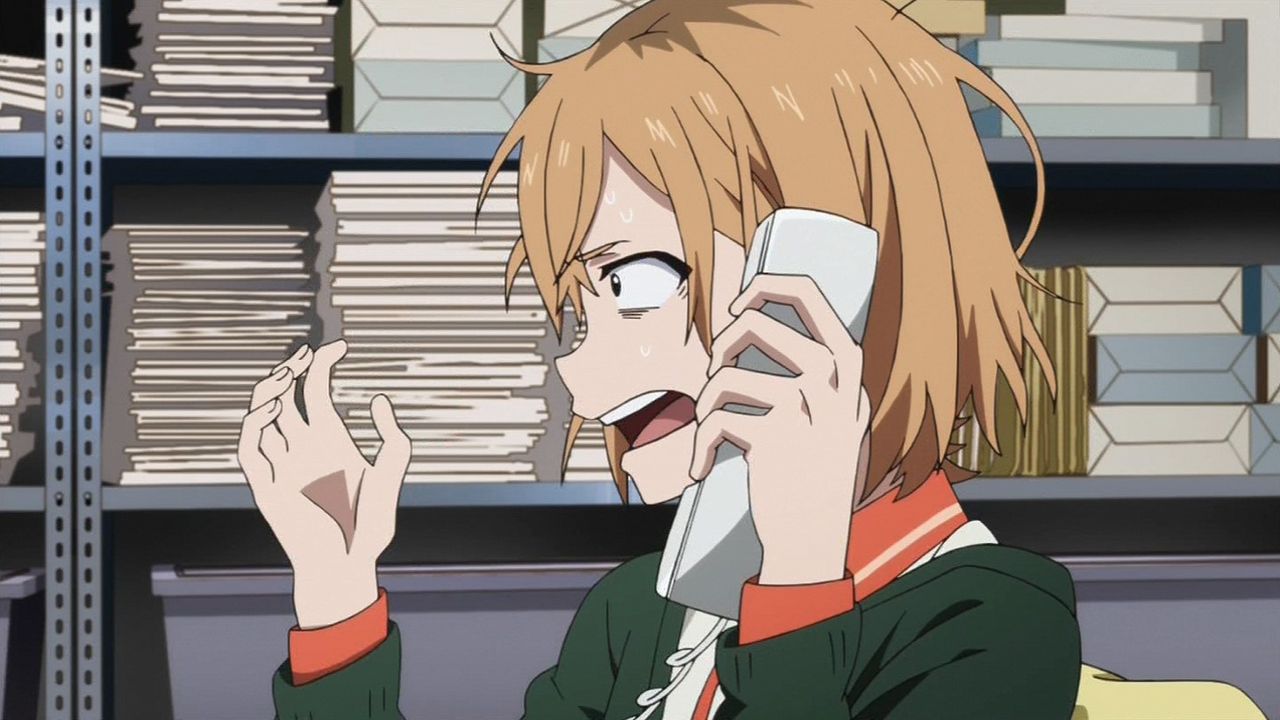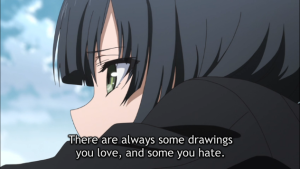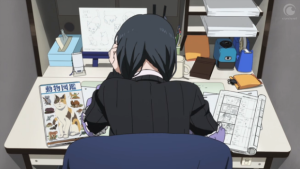Though I risk putting myself up for intense mockery, I must get this confession out of the way immediately:
I cried during Shirobako.
It was the arc during episodes 7 and 8, where Ema Yasuhara is struggling with her craft as a key animator. She wants to do good quality work, but she has to learn to do things quickly, because the production is falling behind schedule and deadlines are cruel in the world of making anime. But the people checking her are unhappy with her work, asking her to redo it. She just can’t seem to get it right to her and their satisfaction, and she’s terrified, because not delivering something acceptable means that people won’t give her more work. She wants to be proud of her work, she wants others to like her work, but her own self-doubts and frustration and a looming deadline are crushing her. All she wants to do is make a living off the creative work she loves, but now she’s doubting her ability to do that.
 I cried alongside her as she voiced her fears to the lead character, Aoi Miyamori. I knew how she felt. I’d been where she was many times over. Sometimes I still find myself feeling like her. It’s a scary, scary place to be, and here it felt all too real. Even as I was watching it again to get screens for this article, it felt like a gut-punch: seeing her just barely holding it together in front of Aoi and going into full-blown panic after she steps away.
I cried alongside her as she voiced her fears to the lead character, Aoi Miyamori. I knew how she felt. I’d been where she was many times over. Sometimes I still find myself feeling like her. It’s a scary, scary place to be, and here it felt all too real. Even as I was watching it again to get screens for this article, it felt like a gut-punch: seeing her just barely holding it together in front of Aoi and going into full-blown panic after she steps away.
This is one of the many reasons why Shirobako is such a terrific show: the emotional highs and lows of the characters resonate with anyone who has ever gone to work in a field they were starry-eyed over. It’s a show about following your dreams, seeing the reality of those youthful dreams firsthand, and struggling to come to terms with exactly why you’re following those dreams.
It’s an anime about people who make anime.


